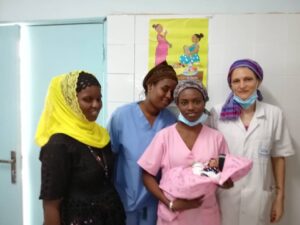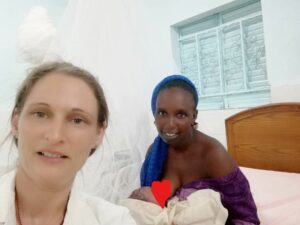
A car approaches the clinic at high speeds and breaks at the last second. A woman yells and makes wide arm gestures. A baby, apparently born on the way, is wrapped in some cloths in the back of the pick-up. The placenta still attached to the umbilical cord. The woman tells us that the baby has not cried yet. We quickly carry the package to the maternity ward and we fortunately hear a noise soon. It had taken the mother so long to find money for transportation that she didn’t make it in time for her to give birth at the clinic. Imagine all the risks that entailed for the small baby. Since April this year the maternity ward has been opened in the clinic in Northern Senegal. In an area where the breadwinner is often for weeks away from home with his cattle. There is little confidence in health care, so we face major challenges.

Birth is an event embedded in all kinds of family and cultural customs. Although there is increasing awareness that giving birth in a health structure is safer, there are still many barriers. The midwife who works for us is a native to the region and understands the women’s reality very well. Nevertheless, the maternity ward is not very well attended. The Corona epidemic probably also plays a role that prevents women from coming. But saving a life like we did for the small baby makes it well worth it, and this will hopefully strengthen the testimony that the clinic is there as a refuge for those who are in medical need.

If you want to support the medical work in Senegal, please donate to the Christian and Missionary Alliance with the reference “Equipping Medical Mission” https://secure.cmalliance.org/give/